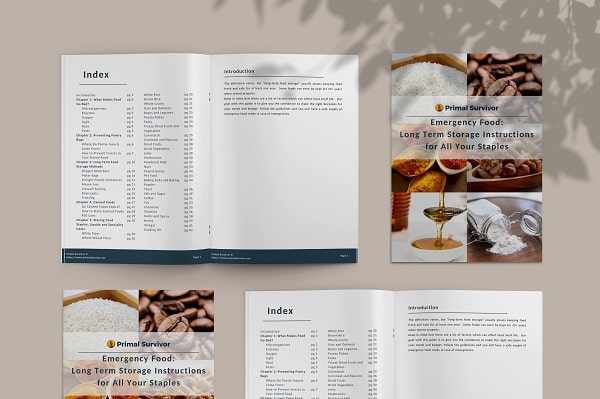Have an old bottle of expired vinegar?
Or maybe you want to stockpile lots of vinegar for disaster preparedness?
Here is what we will be covering in this article:
- Does vinegar go bad?
- Vinegar shelf life
- How to store vinegar
- Should you refrigerate vinegar?
Does Vinegar Go Bad?
Vinegar never goes bad and can be used indefinitely. However, some types of vinegar go through changes as they age, which can cause them to lose their flavor and health benefits.
Unfiltered and unpasteurized vinegar, as well as fruit vinegar, are most susceptible to changes.
Is It Safe to Eat Expired Vinegar?
Yes, it is perfectly safe to use expired vinegar. Because it is so acidic, vinegar has natural antimicrobial properties; bacteria, yeast, and mold will not grow in it.
If the vinegar is very old, it might have become cloudy, developed sediment, or changed in color. However, it is still perfectly safe to use even if the vinegar is years or even decades past its best-by date. (1, 2, 3)
But Vinegar Does Lose Quality
Distilled white vinegar will remain virtually unchanged for years. However, some types of vinegar are particularly susceptible to changes.
The main component in vinegar, aside from water, is acetic acid. When it comes into contact with oxygen in the air, a series of chemical and enzyme reactions occur. This can result in changes like cloudiness and a darker color. The taste can also change over time.
You can still safely use vinegar that is cloudy or has undergone other changes. However, if you are a vinegar connoisseur, then you might prefer to use fresher vinegar for your food (4, 5, 6)
Does Expired Vinegar Still Have Health Benefits?
The acetic acid in vinegar has many proven health benefits. Some types of vinegar also contain high levels of healthy antioxidants, probiotics, enzymes, and organic acids.
Over time, these health-promoting compounds in vinegar start to deteriorate. One study, for example, found that the free-radical scavenging ability of fruit vinegar decreased after 6 months of storage.
For this reason, if you want to use vinegar for health benefits, it is best to use it by its best-by date on the bottle.
Does Braggs Apple Cider Vinegar Go Bad?
Braggs is a brand of raw (unpasteurized) apple cider vinegar. Many other brands also make raw apple cider vinegar. Some types of vinegar, such as balsamic, traditionally are not pasteurized.
Because Braggs ACV and other raw vinegar are not subject to heat during the pasteurization process, they tend to contain higher levels of antioxidants, enzymes, and other healthy compounds.
These compounds will deteriorate over time. So, while Braggs ACD and other raw vinegar will never go bad in the sense that it becomes unsafe to eat, they will not have as many health benefits. This is why Braggs has a listed shelf life of 5 years. (7)
What Is that Slimy Thing in My Vinegar? Why Is My Vinegar Cloudy?
Sometimes old vinegar will get cloudy. If allowed to sit for a very long time, you might even see a slimy blob or gelatinous film on the vinegar.
This is caused by the vinegar “mother,” which is made up of cellulose and the bacteria which produce acetic acid. If a mother forms, it just means that there were some unfermented sugars in the vinegar. It is completely safe to consume the vinegar mother, and you can even use it to make your own vinegar.
The mother does have a gross texture that you probably don’t want in your salad dressings, though. So, if you see a mother forming in your vinegar, you can strain it out through a coffee filter or cheesecloth.
Can You Use Expired Vinegar for Canning and Pickling?
Over time, the acetic acid in vinegar can slowly break down. This could cause the vinegar to become less acidic. Because of this, it is generally not recommended to use old vinegar for canning and pickling.
Shelf Life of Vinegar
All types of vinegar are safe to use indefinitely. For best quality, though, most vinegar should be used within 1-3 years after opening or 2-5 years before opening. The exception is distilled white vinegar, which won’t lose quality.
| Vinegar Type | For Best Quality (Unopened) | Safe Use |
|---|---|---|
| Distilled white | Indefinite | Indefinite |
| Apple cider | 5 years | Indefinite |
| Raw apple cider | 2-3 years | Indefinite |
| Balsamic | 1-3 years | Indefinite |
| Red wine | 2-3 years | Indefinite |
| Rice vinegar | 2 years | Indefinite |
| Fruit vinegars | 1-3 years | Indefinite |
How to Store Vinegar
- Store vinegar in a cool, dark place away from direct sunlight.
- Keep vinegar unopened. Once open, keep the lid tightly closed.
- For best quality, choose vinegar which comes in glass bottles instead of plastic.
Do I Need to Refrigerate Vinegar?
Vinegar does not need to be refrigerated. It has a forever shelf life even if left in a hot kitchen.
However, if you are concerned about preserving enzymes, antioxidants, and other health-promoting compounds in raw vinegar, then you can store it in the refrigerator.



I don’t understand what I need to do with vinegar. It is about 4 weeks or less since opening but now it has the slimy blob in the bottom which I toss. What should I do to make it last? Thanks
You don’t have to do anything. Vinegar won’t ever go bad. The slimy blob is even safe to eat (I personally don’t eat it though because I find it gross). It just means you are choosing more natural vinegars instead of highly-processed ones.